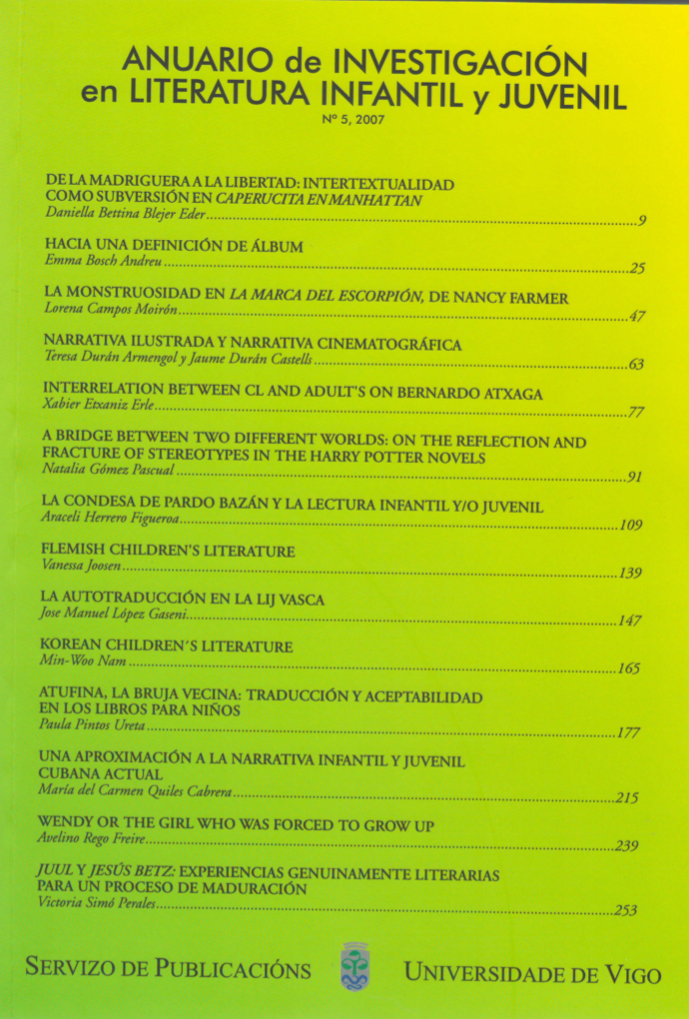Wendy or the girl who was forced to grow up
Keywords:
childhood, to grow up, motherhood, male/female opposition, patriarchal society, Victorian womanAbstract
At the beginning of the 20th Century, several children books were published becoming classics in English Children Literature. This is the case with James Mathew Barrie, and his work Peter Pan. Although Peter Pan is considered the most important character both in the fairy tale (published in 1911) and in the play (published in 1928), it would be hard to understand Peter's behaviour as well as his development in the story, without Wendy. The aim of my paper is to analyse Wendy's character. She represents the traditional Victorian woman, who wishes to be the perfect woman. She wants to be an abnegated mother and wife, being the centre of her life the patriarchal figure.
I will try to show that both in the fairy tale and the play, Wendy reproduces her own Victorian family pattern in Neverland —the fantastic world. In the fantasy world, Wendy takes control; she imposes her rules, that is, Victorians rules. She even takes care of the children, and household duties. Her intention is to be a good mother, but she also looks for the “perfect husband”. In her search Wendy fulfils the Victorian stereotypes, and she craves to find in Peter the perfect husband”. Therefore she starts to seduce him, but he is not interested. He only sees her as a mother, not as a woman. Wendy stippresses her sexual desires in order to follow Victorian conventional roles where women are sexually passive.
Downloads
Downloads
Published
Issue
Section
License
Anuario de Investigación en Literatura Infantil y Juvenil has been published in open access from 2019 (vol. 17). The journal allows the authors to retain publishing rights. Authors may reprint their articles in other media without having to request authorization, provided they indicate that the article was originally published in Anuario de Investigación en Literatura Infantil y Juvenil. The journal holds the copyright of printed issues (volumes 0-16).





